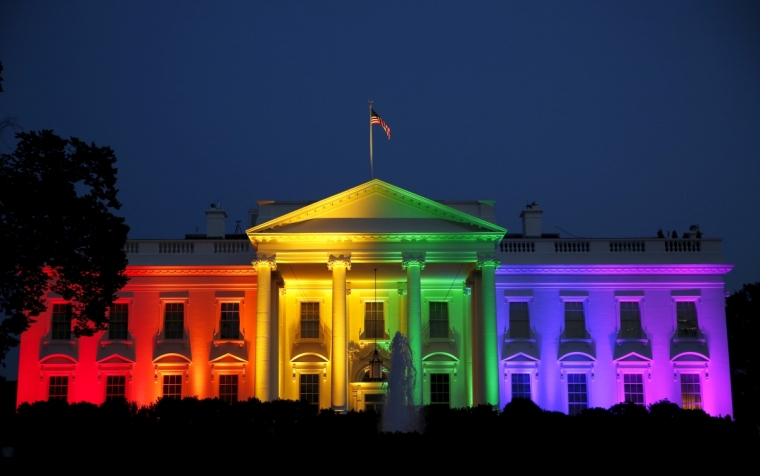Backlash: Support for gay marriage dips, while more support religious liberty

WASHINGTON (Christian Examiner) -- A backlash against same-sex marriage in light of the Supreme Court's decision to legalize the practice nationwide may be under way, as the percentage of Americans who now favor it actually has declined since April – and a majority of them support robust religious protections for those opposed to gay marriage, according to a new Associated Press-GfK poll.
The survey of 1,004 adults July 9-13 – two weeks after the high court's landmark ruling – found that 42 percent support same-sex marriage, a drop of six points since April, when 48 percent said they backed it. The new poll found that 40 percent now oppose same-sex marriage, an increase from 36 percent in April.
What the Supreme Court did is jeopardize our religious freedoms. ... You're going to see a conflict between civil law and people who want to live their lives according to their faiths.
The fact that Americans are nearly split evenly on the issue (42-40 percent in favor) defies conventional wisdom and the mantra from the mainstream media, which has said a large majority of U.S. adults support gay marriage. The 42 percent in favor of same-sex marriage is lower than it was not only in April but also in January (44 percent) and October (46) when the same question was asked.
The survey asked Americans: "Do you favor, oppose, or neither favor nor oppose allowing same-sex couples to be legally married in your state?"
It isn't known why the percentage has fallen, although debates in the news over religious freedom – such as whether business owners and state officials should be able to have religious objections – may have had an impact.
"What the Supreme Court did is jeopardize our religious freedoms," Michael Boehm, 61, told AP. "You're going to see a conflict between civil law and people who want to live their lives according to their faiths."
When asked what is "more important for the government to do" in a conflict – protection "religious liberties" or protect "the rights of gays and lesbians" – Americans chose religious liberties, 56-39 percent.
Additionally, by a margin of 49-47 percent, U.S. adults say that "state and local officials and judges who issue marriage licenses but have religious objections to same-sex marriage" should be exempt from handing them out.
Americans also want to see wedding businesses given the option of refusing services. When asked "do you think that wedding-related businesses with religious objections should be allowed to refuse service to same-sex couples, or not," adults by a margin of 59-39 percent said they should be allowed to turn customers away. That question was asked of only half the sample.
Meanwhile, a plurality of adults (41 percent to 39 percent) say they opposed the Supreme Court's decision.
The poll can be read in its entirety here.